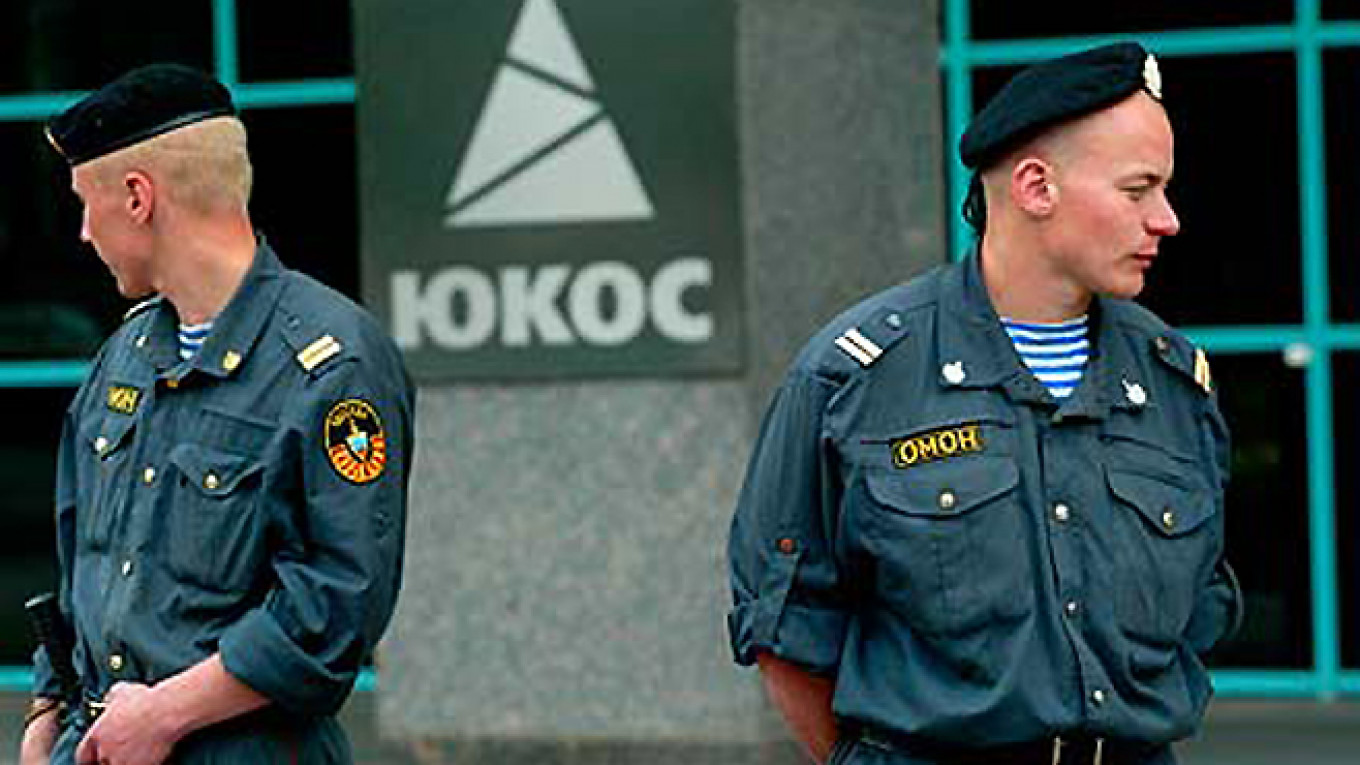In the month following the start of the Crimean crisis, we have seen President Vladimir Putin expand the skills he first honed with the seizure of Yukos.
Putin's strategy begins with an outrageous move, such as deploying troops to Crimea or seizing a major oil company. He then supports his decision with lies and half-truths, while waiting for the West to do something other than twiddle its thumbs. He started with commercial expropriation and then moved to territorial expropriation.
When Putin first targeted Yukos in 2003, he was opportunistic. Unsure of the West's reaction, he began to test the limits of what he could get away with. First, he formed a team of some 50 people in the Prosecutor General's Office to advise him on how to steal Yukos. This process began in December 2003.
By April 2004, Yukos' management filed a case in the European Court of Human Rights. Putin knew that it would take years for the court to take any action and that he could control the Russian court system, in the meantime.
He smeared Yukos' management with fraudulent allegations of tax fraud and waited to see if Western governments would intervene to protect investors. The West did nothing, and Putin learned that he could do as he pleased with little consequence.
As a rule, Putin takes advantage of the West's timid attitude. Its reluctance to act only spurs him on. Unfortunately, Russians are the ones that will ultimately suffer, not Putin or the siloviki.
Russia's economic growth since the Yukos affair has occurred not because of Putin, but rather despite him. Russia's abundance of oil, gas and other natural resources has hampered the development of a diversified economy, and poor relations with the West will not help its development.
Russian stocks are cheap, foreign investors leave only limited amounts of capital in Russia, and Russian investors move most of their assets abroad. Investors know that because of corruption, lack of an independent judiciary and lack of rule of law, they cannot trust the Russian government.
History is a great teacher. Yukos was one of the Russian economy's main drivers, with more than 110,000 employees and tens of thousands of shareholders around the world. We never expected to find ourselves at the mercy of an intensely powerful campaign of obfuscation. When it finally happened, it was shocking and unbelievable.
Putin is a master of deception. In June 2004, he said that "Russian officials, the government and economic officials of the country are not interested in bankrupting a company like Yukos."
Meanwhile, exorbitant tax demands and freezing orders were issued by the government, along with unreasonable deadlines and a corrupt legal process to reinforce them.
The Russian government's unlawful actions against Yukos have been independently confirmed by several international bodies. In September 2011, the European Court of Human Rights found that Russia violated the rights of Yukos shareholders by seizing the company. The court is also considering issuing a substantial "just satisfaction" claim against the Russian government.
It is likely that Russia will be found guilty of expropriation in another international inquiry later this year, when the International Court of Justice in The Hague hears a case against the government.
If these rulings fall in favor of the Yukos shareholders, it will send a signal to Putin that the Russian government's crimes will eventually catch up with him. To quote Putin himself: "A thief belongs in jail."
Bruce Misamore was chief financial officer and deputy chairman of the management committee of Yukos Oil Company from 2001 to 2005. Since then he has been instrumental in a global legal campaign seeking compensation for Yukos' stakeholders from the Russian government. He is not a shareholder of Yukos.
A Message from The Moscow Times:
Dear readers,
We are facing unprecedented challenges. Russia's Prosecutor General's Office has designated The Moscow Times as an "undesirable" organization, criminalizing our work and putting our staff at risk of prosecution. This follows our earlier unjust labeling as a "foreign agent."
These actions are direct attempts to silence independent journalism in Russia. The authorities claim our work "discredits the decisions of the Russian leadership." We see things differently: we strive to provide accurate, unbiased reporting on Russia.
We, the journalists of The Moscow Times, refuse to be silenced. But to continue our work, we need your help.
Your support, no matter how small, makes a world of difference. If you can, please support us monthly starting from just $2. It's quick to set up, and every contribution makes a significant impact.
By supporting The Moscow Times, you're defending open, independent journalism in the face of repression. Thank you for standing with us.
Remind me later.






